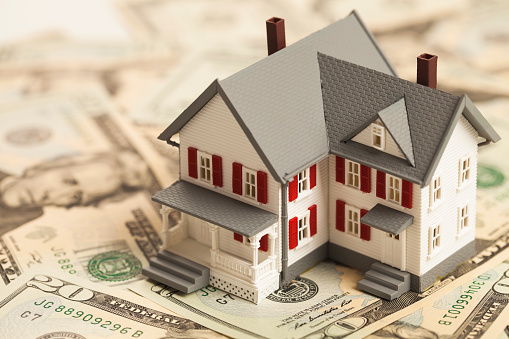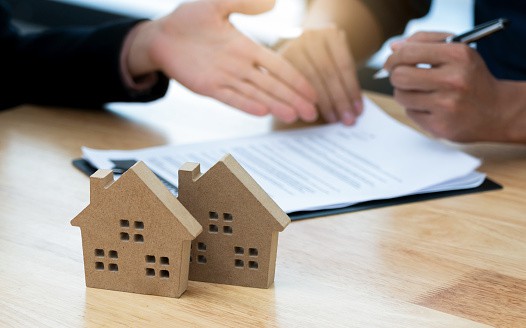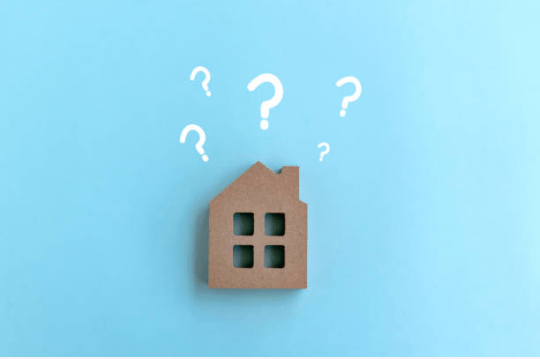Cash out refinancing is when you refinance your home and take out a loan for more than what you currently owe, and then you take the difference in cash. You can use this cash for whatever you want, but a cash out refinancing can be useful when used carefully and wisely. When getting a handsome amount of cash in a lump sum, it can be difficult to practice self-control, but you really should be using that cash to invest in yourself long term. Before cashing out on your home’s equity, it is important to sit down and think about why you want to do this. See what your payment would be with today’s rates by using a refinance mortgage calculator.
The most common reasons for a cash out refinance are:
- Home Renovation
- Paying Off Debt
- Starting A Business
- Purchasing A Second Home
Increasing The Value Of Your Home With A Home Remodel
The most common reason for a cash out refinance is to use the cash for a home remodel. While it seems at first glance that a home remodel is for personal gain, it is also considered an investment. A home purchase is one of the biggest financial purchases one can make in their lifetime, and remodeling it to update certain fixtures (such as a modern kitchen and updating the utilities to use cleaner energy) will also increase the home’s value. Unfortunately, home renovations are expensive no matter how “small” a project may seem, which is where a cash out refinance would come in handy. If you were to decide to sell your home in the future, you would be able to hike up the selling price for more than when you first purchased it. Not only is the value of property steadily climbing, but selling a home that is “move-in ready” could potentially tack on extra costs to the asking price because the buyer won’t have to do any necessary home remodeling. They would be able to cook and entertain guests starting on moving day. Investing the money into your home for improvements would help you to capitalize on your home’s value.
Pay Off Credit Card Debt
Another common reason for a cash out refinance is to pay off the majority of your debt. Having no debt at all would be ideal, but sometimes real life comes knocking at your door. People need to take out a loan to go to school or swipe a credit card in the event of an emergency. If you have debt that you need to pay off, a cash out refinance lets you tap into the equity of your home to pay it off. Paying off your credit cards would be the most ideal since the interest rates for credit cards are absurdly high, sometimes with 30% interest rates! You will find yourself getting out of your credit card debt very slowly if you are only paying the minimum payment because most of your monthly payment will be paying off the interest charges. Many people don’t realize this, but when paying the minimum payment amount on a large balance with such high-interest rates, you might never get out of debt. While you are paying off your credit card debt, you will still have to pay back the cash that you borrowed from your home. However, paying back your cash out refinance loan won’t give you an interest rate as high as credit cards, so you will still be in better financial shape. An additional benefit to paying off your debt with a cash out refinance is that your credit score will increase by reducing your credit utilization ratio- the amount of your credit card balance in comparison to the credit limit. Also, by paying your new mortgage payments instead of paying your credit cards, you could get a bigger tax refund since mortgage interest payments are tax-deductible. Home loans offer a big tax advantage and this would reduce your taxable income, resulting in more money back during tax season.
Pay Off Other Debt
You could also use a cash out mortgage refinance for debt consolidation to pay off other debt that you may have such as auto loans, student loans, or costly medical bills.
Fund Business Ventures
As mentioned before, using the money from your cash out refinance to invest in yourself is highly recommended. You also want to be smart about your decisions since your home is on the line. Using this money to invest or start a new business can be risky so again, think about why exactly you want to cash out on your home. If you have a great business concept and want to start your own business but don’t have the funds to get the operation going, this could be a way to get your ideas off the floor and get your new business up and running.
Using the cash from your refinance as a down payment for a second home is more common since you could use that home as a rental property and increase your flow of income. You could even choose to live in the second home and use your current home as a rental property.
The most important thing when deciding if this is something you want to pursue is to make sure that you have enough equity. This means that you will need to have paid off a decent amount of your home if you want to take out a large amount of money. There is a limit on how much cash you can take. Before, you were able to take a loan for the full value of your property, but it didn’t end up so well. Nowadays, it’s better to have an 80% or less Loan to Value Ratio, so the more equity you have, the more money you can take. It is also important to note that simply because you need the cash does not mean you’re guaranteed to get approved for it. The best way to get approved for a cash out refinance is to have enough equity and have a good credit score.
What else should you consider before a cash out refinance?
When using a cash out refinance to purchase another home, it is best to think of it as a long term investment. It is going to take time to see the return on your investment, so keep in mind that you won’t be seeing profits right away. Also, since a cash out refinance will most likely increase your monthly payment, it is important to calculate if your income from the rental property will be able to cover the difference in your monthly payment amount. In order to even qualify for a cash out refinance, there are some things to consider.
Since you will be adding more debt to what you already owe, it is important to show your lender that you have been consistently making payments on your original mortgage. Some cash out lenders require that you make payments for at least 12 months before you can even apply for a cash out refinance loan. Lenders might also give you a higher interest rate for a cash out refinance since you’re opting to take on more debt, therefore making it riskier for the lender.
When going through with a cash out refinance, it’s important to consider the fees when comparing your existing mortgage to the new mortgage via cash-out refinance. You can expect to pay about 3 to 6 percent of the new loan amount for closing costs. Closing costs include the lender origination fee and an appraisal fee. One option to consider is avoiding up-front closing costs by rolling loan costs into your new mortgage, but this may result in a higher interest rate. You may have to fork over some of your own cash to pay for the legal fees and loan origination fees. If you need a certain amount for a particular project, be aware of how much these fees will cut into your lump sum.
When does a Cash Out Refinance NOT make sense?
If you are looking to take out money of your home to pay something you don’t absolutely need or can’t afford, this may be a big mistake and something you should reconsider. Some of these reasons include the following:
- Buying a car
- Taking a vacation
- Helping someone else in financial need
- The interest rate on the new loan is much higher than your current loan
- You are looking to retire soon
What are alternatives to a cash-out refinance?
HELOC or a home equity line of credit may be a good alternative. This is a line of credit taken from your home to allow you to draw funds against the equity in your home multiple times up to a maximum amount. Another option is a home equity loan, which is a lump sum loan that is borrowed against the equity in your house at a fixed interest rate and acts as a second mortgage. A good thing about these loans is that the interest on a home equity loan or HELOC is tax-deductible if the funds are used for home improvements. Another option if you are looking for money is a personal loan. Personal loans do not take equity out of your house, but typically a home equity loan has a lower rate than a personal loan, so be sure to do your homework.
Overall Thoughts
A cash out refinance can be beneficial in numerous ways and there are definitely better ways to use it than others have in the past. In the end, using it as an investment for long term gain is the best way. No one can tell you how you use your money and you are at liberty to spend it however you like whether you want to spend it on a new wardrobe, a new car, or a long-overdue vacation. Please keep in mind, however, that using that money on things that will increase in value is a good method since you will eventually have to pay it back with interest. However, based on current mortgage rates, it may make perfect sense to get into a cash-out refinance that could give you a lower interest rate plus the cash out that you need in the new mortgage loan compared to your original loan.
Cash-Out Refinance FAQs
What is the max LTV for a cash out refinance?
Lenders typically allow a max LTV of 80% for cash-out refinances.
How much cash can you take out with a cash out refinance?
Maximum cash out is determined by both LTV and borrower affordability based on lender verification of the monthly payments a borrower could handle. Borrowing may be restricted by Debt-to-income limits if the new, larger loan balance creates monthly payments too high for the current borrower’s income.
Is there a seasoning requirement with cash out refinancing?
If you buy real estate, you will typically need to own it for at least 12 months before taking cash out. This was enacted to deter investors from buying homes with no down payment and then refinancing them at a higher value.
Can you do a cash out refinance with poor credit?
Typically, you can get approved with credit as low as 620, but your interest rate will most likely be higher to compensate for the low credit.
What are the tax implications of a cash-out refinance?
With cash-out refinancing, you are taking out a new, larger loan that you will need to pay back with interest over time, so there is no additional income tax to worry about. Since the cash out you are taking via a cash-out refinance is not treated as income, it may be tax-deductible if used to improve the value of your home, such as home improvement. Using the money for credit card debt or student loan debt would NOT qualify.
Can I get a cash-out refinance on a rental property?
Yes, but for investment properties, the maximum LTV is lower than on primary residences, typically with a maximum of 70%.
Can you do a cash-out refinance with an FHA loan?
Yes, you can. For FHA loans, the maximum LTV is 80%.
Can you get cash out with VA loans?
If you qualify for a VA loan and occupy the property as our primary residence, you may be able to get up to 100% LTV financing for a VA loan. You can also use a VA cash out refinance to refinance a non-VA loan such as an FHA or USDA loan into a VA loan.
Can you get a cash out refinance on a jumbo loan?
Yes and the loan limits are most likely much higher than other loan options, but you’ll need a pretty large equity cushion.
Can you get a cash out refinance with a streamline refinance?
You are NOT able to get cash out on a streamline refinance, as this type of refinance is only intended to lower the borrower’s monthly mortgage payments or move to a fixed-rate product.
Does it take longer to pay back a cash-out refinance?
Yes, if you are taking cash from your home, you will continue to set yourself back in the paying off of your mortgage and end up paying more interest than if you never took cash out.
Where do you get a cash out refinance?
Most financial institutions that offer home loans will also offer cash out refinances. This includes banks, mortgage banks or credit unions.



